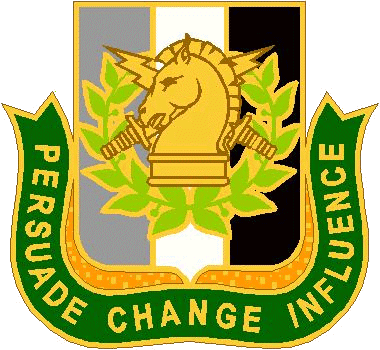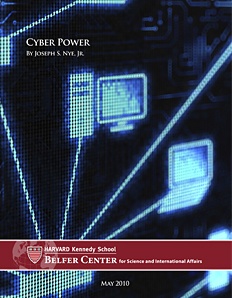
Dr. Dr. Dave Warner (PhD, MD)
Ref A: Cyber-Pass Meets Khyber Pass
Ref B: Warner to Clapper on PRT Comms
Ref C: UnityNet White Paper Final

See Also:
Earth Intelligence Network “One Call At a Time”

Dr. Dr. Dave Warner (PhD, MD)
Ref A: Cyber-Pass Meets Khyber Pass
Ref B: Warner to Clapper on PRT Comms
Ref C: UnityNet White Paper Final

See Also:
Earth Intelligence Network “One Call At a Time”

As the end game begins for NATO and the US in Afghanistan, and as the potential mineral wealth of that unhappy land is revealed, one confronts despair when contemplating the fate of the Afghans. With the Taliban poised to move once more into the coming power vacuum and exploit a resurgent drug trade as well as establish a protection racket parasitic to the future mining industry, one looks for some glimmer of hope for the Afghan people.
After all, Afghanistan has never been conquered except by the Mongols. The much decentralized, tribal society that makes them vulnerable to decentralized gang rule has confounded each centralized invader who attempted to bring about their own version of order. Is there hope that the Afghan people will be able to expel the Taliban as they expelled the others? After all, the first government of the Taliban was not overthrown by the Afghans themselves, but by military invasion with the passive consent of the Afghan people.
Now, with the outside military forces beginning their final period in-country, and with little if any evidence of a viable government staffed by officials who will not bolt the country with their pockets stuffed, what can give the ordinary Afghans the means to resist as they have resisted other occupations?
The answer, I believe, lies in the essence of government. Government operates by communication. People in government gather, refine, transmit information, both from the populace to the seat of power and in reverse after policies and laws are defined based upon the information gathered. People have political power to the extent that they are included in this process of information flow to the exclusion of others.
Continue reading “Afghan Self-stabilization from Below – and Above”

PSYOP has long had problems being PSYOP. Overseas they often work as “Military Information Support Teams” (MISTs). If you want to get them significantly spun up, try to discuss with them “perception management” or “deception.” Try that and they tend to go to ground very quickly. As for nefarious, spooky, and master manipulators, US PSYOP has always been dwarfed by the British; e.g., “Soldatensender Calais,” documented in Sefton Delmer's “Black Boomerang.” Personally, I just don't think the current Executive Branch of the USG has the will to play a full-up, full-spectrum game in the national security/foreign policy arena. Now, soon, or later, we will pay for that in needless loss of life. Remember always John Stewart Mill: “War is an ugly thing but not the ugliest of things. …”
 By Kevin Maurer
By Kevin Maurer
Associated Press
July 2, 2010
The Army has dropped the Vietnam-era name “psychological operations” for its branch in charge of trying to change minds behind enemy lines, acknowledging the term can sound ominous.
The Defense Department picked a more neutral moniker: “Military Information Support Operations,” or MISO.
U.S. Special Operations Command spokesman Ken McGraw said Thursday the new name, adopted last month, more accurately reflects the unit’s job of producing leaflets, radio broadcasts and loudspeaker messages to influence enemy soldiers and civilians.
“One of the catalysts for the transition is foreign and domestic sensitivities to the term ‘psychological operations’ that often lead to a misunderstanding of the mission,” McGraw said.
Fort Bragg is home to the 4th Psychological Operations Group, the Army’s only active duty psychological operations unit. Psychological operations soldiers are trained at the post.
The name change is expected to extend to all military services, a senior defense official said in Washington. The official, who has direct knowledge of the change, spoke on condition of anonymity because not all services have announced how they will revamp or rename their psychological operations offices.
The change was driven from the top, by Pentagon policymakers working for Defense Secretary Robert Gates. It reflects unease with the Cold War echoes of the old terminology, and the implication that the work involved subterfuge.
The change, however, left some current practitioners of psychological operations cold. Gone is the cool factor, posters to online military blogs said. With a name like MISO, one wrote, you might as well join the supply command.
Alfred H. Paddock, Jr., a retired colonel who was Director for Psychological Operations in the Office of the Secretary of Defense from 1986 to 1988, said the term has always had some baggage and been difficult to explain.
“Somehow it gives a nefarious connotation, but I think that this baggage can be overcome,” said Paddock, who also served three combat tours with Special Forces in Laos and Vietnam.
He said the military was giving in to political correctness by changing the name.
Psychological operations have been cast as spooky in movies and books over the years portraying the soldiers as master manipulators. The 2009 movie “The Men Who Stare at Goats,” staring George Clooney, was about an army unit that trains psychic spies, based on Jon Ronson’s nonfiction account of the U.S. military’s hush-hush research into psychic warfare and espionage.
But the real mission is far more mundane. During the 2003 invasion of Iraq, psychological operations units dropped leaflets urging Iraqis to surrender.
In Vietnam, a psychological operations effort called the Open Arms Program bombarded Viet Cong units with surrender appeals written by former members. The program got approximately 200,000 Viet Cong fighters to defect.
McGraw said the name change was approved by Defense Secretary Robert Gates and Adm. Eric Olson, the Special Operations commander, in mid-June.
Many in the psychological operations community, including Paddock, dislike the new name.
“Military Information Support Operations, or MISO, is not something that rolls off the tip of your tongue,” Paddock said. “It makes it even more difficult for psychological operations personnel to explain what they do. That they still have the capability to employ programs and themes designed to influence the behavior of foreign target audiences.”
Phi Beta Iota: PSYOP is 80% fraud, waste, and abuse, and that percentage is kind. They are still teaching enlisted people at Fort Bragg how to load aircraft propaganda cannisters to deliver leaflets to people who by and large cannot read. 80% of PSYOP billets, dollars, and facilities should be immediately transferred to the Civil Affairs Corps, and used to transition to the regional brigades that include a single multinational Civil Affairs Brigade for each region, along with direct support multinational battalions for military police, combat engineers, medical, and organic land, sea, and air units, all built around a US C4I hub with both regional and donor country (e.g. Nordics) participation.
 |
|
|||||
Prevent web malware and enforce policies for all usersGoogle Web Security for Enterprise, protects organizations of all sizes against web malware attacks and enables the safe, productive use of the web, without incurring hardware, upfront capital, or IT management costs. Simple to deploy, effortless to maintain, scalable and secure
Interested in learning more? Download these resources |
Comment: You were right. I've just learned about Google's Endgame. I'm sure it's been out a while, but when I saw this, I immediately thought of your statement about Google wanting to BECOME the Internet. The short video tells all. REDACTED
Phi Beta Iota: see also these posts.
Phi Beta Iota: The idea of one mobile per person was originally devised by the Earth Intelligence Network, and is articulated in both brief form and in a full-length book. Now the idea is emerging, spontaneously, from others. Below is a link to a letter in the Journal of Health Informatics in Developing Countries.
Letter: One mobile per child: a tractable global health intervention
The authors, Prajesh Chhanabhai and Alec Hold, one working at the University of Otago in New Zeland, the other for the Department of Economic and Soical Affairs in the United Nations, make several important points, not least of which is the price point: mobile telephones are being offered in Venezuela for $15, which is half the price the World Bank negotiated with Motorola.
If and when the Chinese see the opportunity (free cell phone, no extra charge for listening in), we should see both free cell phones and eventually free airtime as well as free call centers to educate the poor “one cell call at a time” at the same time that we recoup the investment in elevated national productivity, now proven to be associated with the diffusion of cell phone access.
It merits observation that the cell phone is now the “gift of life” that any one of the one billion rich (80% of whom do not give to charity now) can endow, down to a specific person in a specific village. The sooner we make cell phones ubiquitous, the sooner we can start exposing corruption at all levels (with web sites that make sense of text messages and expose corruption in near-real-time “by name,” and also creating infinite wealth among the four billion at the “bottom of the pyramid.” The human brain is the one inexhaustible resource we have, giving every human a cell phone is the fastest way to harnessing the distributed intelligence of the Whole Earth.
Interesting Side Note: Carlos “slim” Helu (richest person in the world) has a major stake in Tracfone (some phones go for $10). He could be a major player in the one mobile per child campaign. Venezuela president Hugo Chavez has a Twitter account and the Earth Intelligence Network just posted >> earthintelnet @chavezcandanga “the Vergatario” ($15 phone) + Carlos “Slim” Helu ? http://phibetaiota.net/?p=25785 #Vergatario #Venezuela #CarlosSlim

Nye, Joseph S. “Cyber Power.” Paper (30 Pages)
Belfer Center for Science and International Affairs, Harvard Kennedy School,
May 2010
Power depends upon context, and the rapid growth of cyber space is an important new context in world politics. The low price of entry, anonymity, and asymmetries in vulnerability means that smaller actors have more capacity to exercise hard and soft power in cyberspace than in many more traditional domains of world politics. Changes in information has always had an important impact on power, but the cyber domain is both a new and a volatile manmade environment. The characteristics of cyberspace reduce some of the power differentials among actors, and thus provide a good example of the diffusion of power that typifies global politics in this century. The largest powers are unlikely to be able to dominate this domain as much as they have others like sea or air. But cyberspace also illustrates the point that diffusion of power does not mean equality of power or the replacement of governments as the most powerful actors in world politics.
DOWNLOAD PDF (30 pages, 1.1 MB) from Harvard Site
Phi Beta Iota: The author served as deputy director of the National Intelligence Council and as an Assistant Secretary of Defense for International Security Affairs. He coined the term “soft power” and is arguably the most astute and coherent observer and analyst of traditional relations among nations now serving in the upper ranks of the elite that pupport to be serving the public interest.
Comments:
See Also: